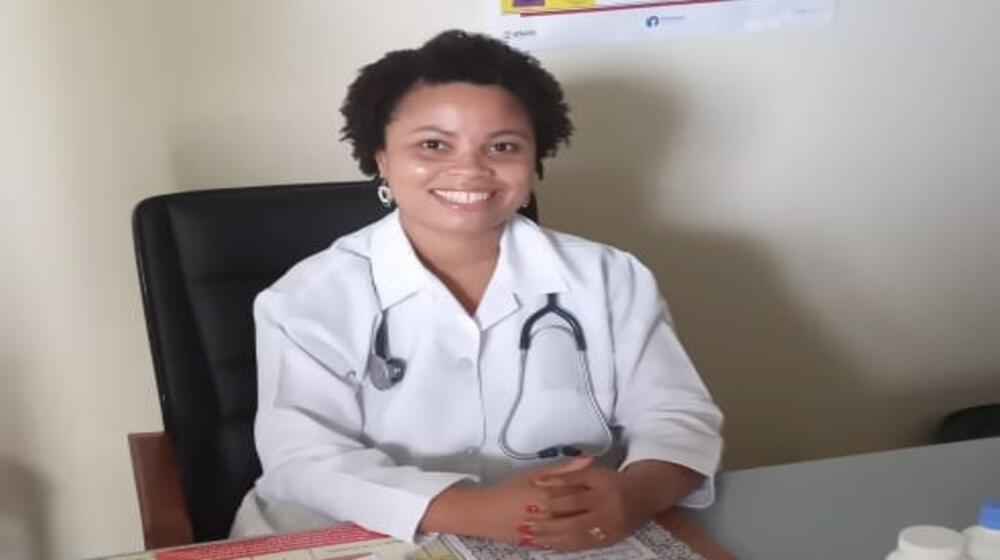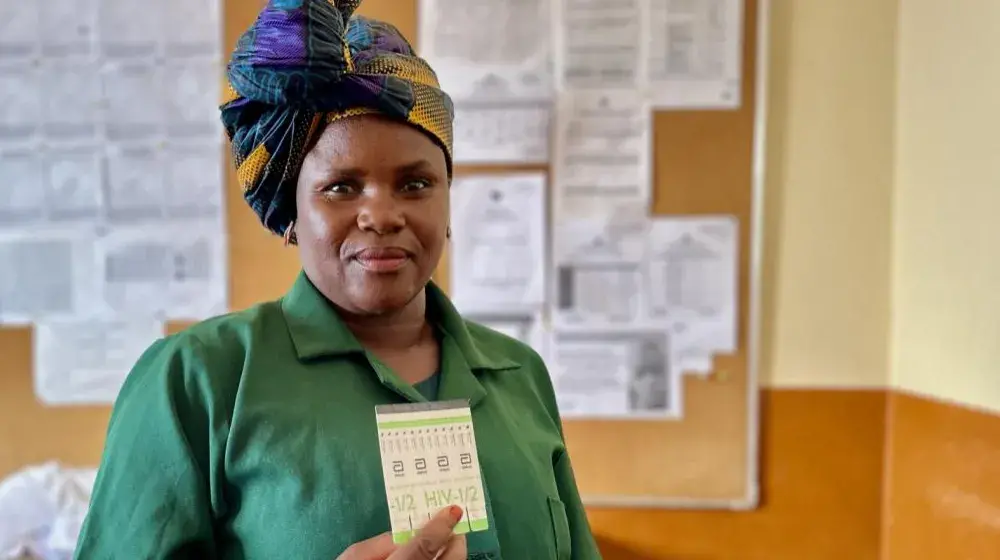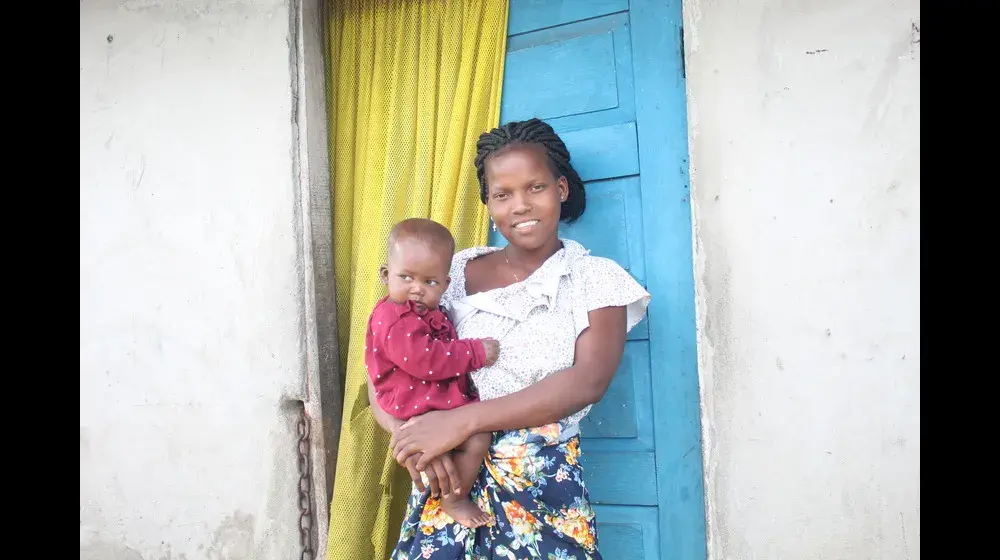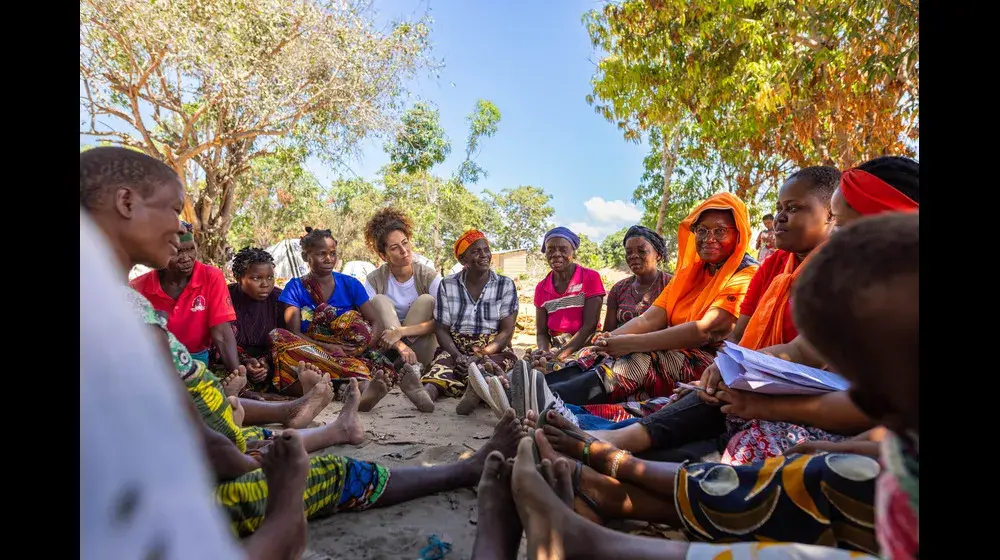From one day to the next, we were left without any resources, even without electricity. In the dark with lanterns and candles, it became very difficult to take care of our patients; we had to use what we could,"
said General Practitioner, Maria Judite Marecos, on the day she was working in the Dondo Health Center when Cyclone Idai made landfall in Mozambique. “It was difficult because everyone had to do a bit of everything, not just work as a doctor, for example, we had to help organize the health facility as well,” she continued.
The March 2019 cyclone destroyed more than 90 health facilities and affected an estimated 1.85 million people in Central Mozambique. Sofala Province, the most affected area, has since been hit by Tropical Storm Chalane and Cyclone Eloise.
During a site visit, Dr. Marecos, Director of the Canhandula Health Center, recalled working in the maternity wing after Idai raged through and attempting to organize what remained of the materials and equipment, needing to cart water away, and cleaning the hospital.
Parts of the maternity ward roof had blown away, and the delivery rooms were damaged, patients were cared for in the hallways. The destruction did not stop Dr. Marecos from assisting two immediate births in the damaged hospital. “One child was born in the hallway, another on the floor; we really didn’t have a lot of options,” she shared, remembering the heroic efforts of the available staff.
Of the 1.85 million people affected by Cyclone Idai, 438,000 were women of reproductive age, including 74,000 pregnant women, many of whom lost access to life-saving emergency obstetric and newborn care and also to critical sexual and reproductive health services.
Since day one, UNFPA was on the ground to support the frontline workers in the provinces affected by Cyclone Idai, providing health tents in damaged health facilities and sexual and reproductive health kits to ensure continuity of services in the most affected districts.
Under the leadership of the government, UNFPA also supported the implementation of integrated mobile brigades for accommodation centers and remote-affected communities. These mobile brigades helped reach more than 42,000 women with sexual and reproductive health services including maternal health and family planning.
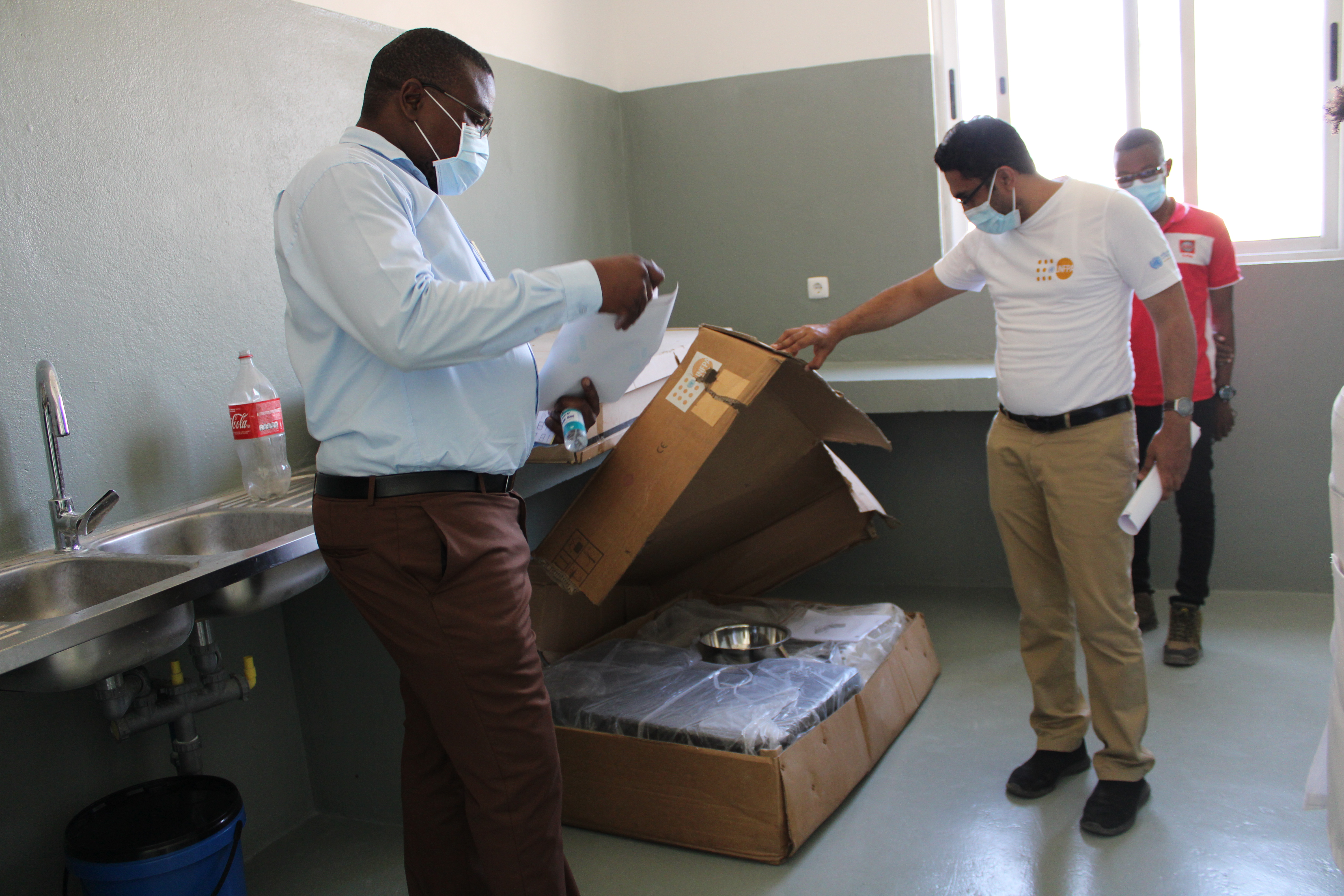
material received at the Canhandula Health Center with the
District Director of Health ©Karlina Salu/UNFPA Mozambique
The needs of women and girls continue during the recovery phase
Faced with recurrent natural shocks and the COVID-19 pandemic, the reconstruction and recovery of disaster affected-areas in Sofala province has been challenging, particularly impacting women and girls of reproductive age, especially women with disabilities. With this target group in mind, the project ‘Support for Women and Girls Affected by Tropical Cyclone Idai in Mozambique’ was created and implemented through the generous financial support of $1.5 million USD from the China International Cooperation and Development Agency (CIDCA).
The project began in December 2019, and prioritized the procurement of essential and life-saving medical supplies and equipment, equipping targeted health facilities and training health care workers on the use of the items. This approach focused on increasing quality of care and strengthening continuity of emergency obstetric and newborn care services for women and girls with the aim to contribute to the reduction of maternal mortality.
To date, more than 500,000 women and girls – including an estimated 69,000 women and girls with disabilities – are estimated to have benefited from equipment and activities the project has funded and implemented, benefitting 34 health facilities in the most affected districts of Buzi, Nhamatanda, and Dondo. Of the more than 500,000 women and adolescent girls of reproductive age who benefited from the project, 212,400 live in Beira City, 94,693 in Dondo, 118,991 in Nhamatanda, and 82,650 in Buzi districts.
Patients attended by Dr. Marecos at Canhandula Health Center are amongst these beneficiaries as the health facility received important life-saving equipment and essential material, including kits for childbirth, family planning, pre-and post-natal consultations, amongst others.
“When the cyclone hit in 2019, the hospital was practically destroyed,” said maternal and child health (MCH) Nurse Graciete Salomão, who has worked at Bandua Hospital in Buzi since 2016 “but luckily the maternity ward was not as badly affected as the rest of the facility,” said Nurse Graciete.
“With the additional help from the project sponsored by the Government of China and UNFPA, we are better able to keep our facilities well-organized. For example, we didn’t really have anywhere to store our medicines and now we have plenty of space to keep things organized. We also didn’t have desks for our consultations; we were forced to improvise since Cyclone Idai!” said Nurse Graciete. With UNFPA support, health tents were established shortly after Cyclone Idai which supported and facilitated the continuous provision of sexual and reproductive health services.
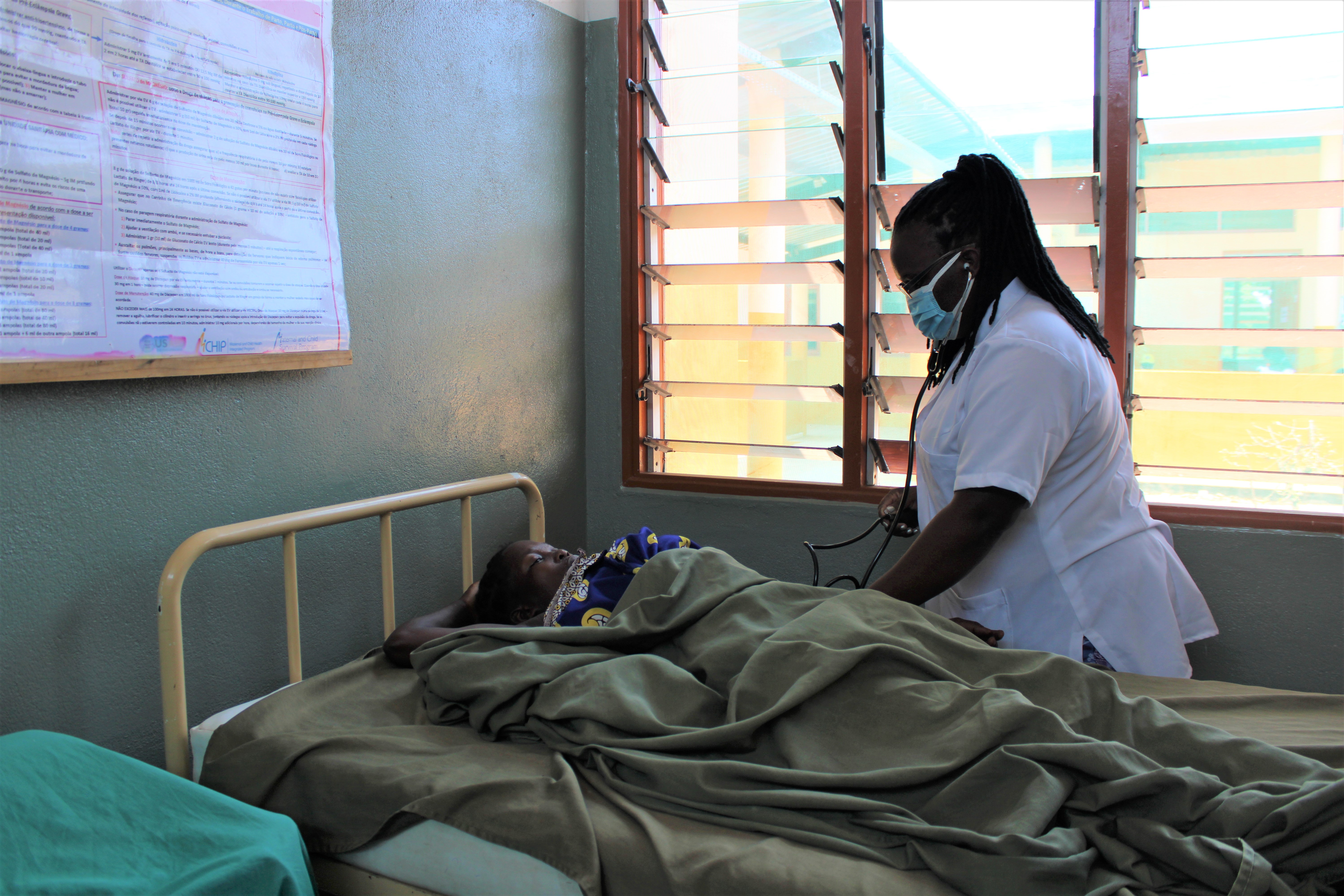
the new equipment procured through the
CIDCA-funded project ©Karlina Salu/UNFPA Mozambique
Working to advance maternal health in Sofala
The investment made by CIDCA to the central Mozambican health sector is a response to the continued necessity of support to the most vulnerable women and girls, before, during, and after childbirth. The Government of Mozambique has increased efforts to reduce maternal mortality in recent years, and through this project has further strengthened these efforts through the provision of 34 kits for pre and postnatal, family planning, and child care consultations and a total of 21 childbirth kits to support the women and girls in the target districts. In addition, eight hospitals (rural and provincial) each received three kits to prevent and treat pregnancy complications, including materials to enhance childbirth, and to perform c-section and hysterectomies.
To further the impact and reach of the CIDCA project, in order to encourage women and girls of reproductive age to seek sexual and reproductive health services at health facilities, a 10-episode radionovela was created and broadcast in Sofala Province. The radionovela effectively provided information about maternal health, family planning, and neonatal care to more than one million listeners in remote communities in local languages.
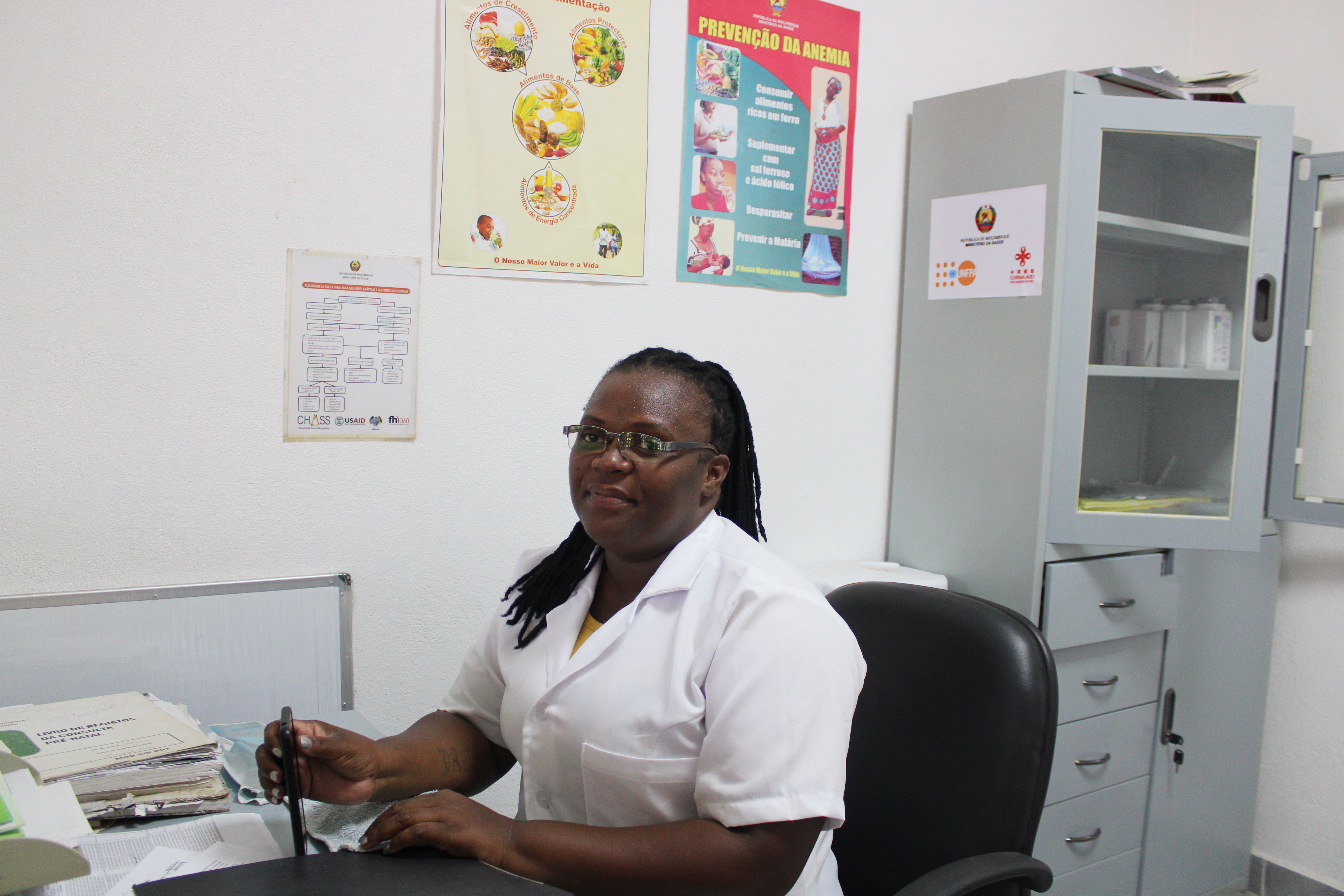
Bandua Hospital, received through the CIDCA-funded
project ©Karlina Salu/UNFPA Mozambique
Since Cyclone Idai in 2019, Sofala Province has been hit by tropical storm Chalane and Ana as well by Cyclone Eloise. The Nhamatanda District Director of Health, Nelson Nascimento, praised the support received by UNFPA through the last climate shocks. “Maternal and child health is a very sensitive area of health,” the District Director stated, “so any additional support that we receive to improve these services is crucial and more than welcome!” Dr. Nascimento received the equipment and material procured through the CIDCA-funded project. In the distribution plan, he and his team prioritized the health facilities in greatest need.
“Nhamatanda is the second most populous district with a population of 320,000. In addition to natural disasters, we also occasionally face armed conflict. Protecting our health services, particularly our medical commodities and medicines is crucial; so the support from this project was very important,” he continued.
The Support for Women and Girls Affected by Tropical Cyclone Idai in Mozambique project has contributed to the continuity of neonatal and maternal services in the affected communities and the quality of service delivery for safe childbirth. More women feel safe and encouraged to give birth in health facilities. With the dedication of the health professionals in the Sofala Province at all levels, and the generous funding from the Government of China through CIDCA, UNFPA remains committed to supporting efforts that will lead to the achievement of zero preventable maternal mortality in Mozambique.

